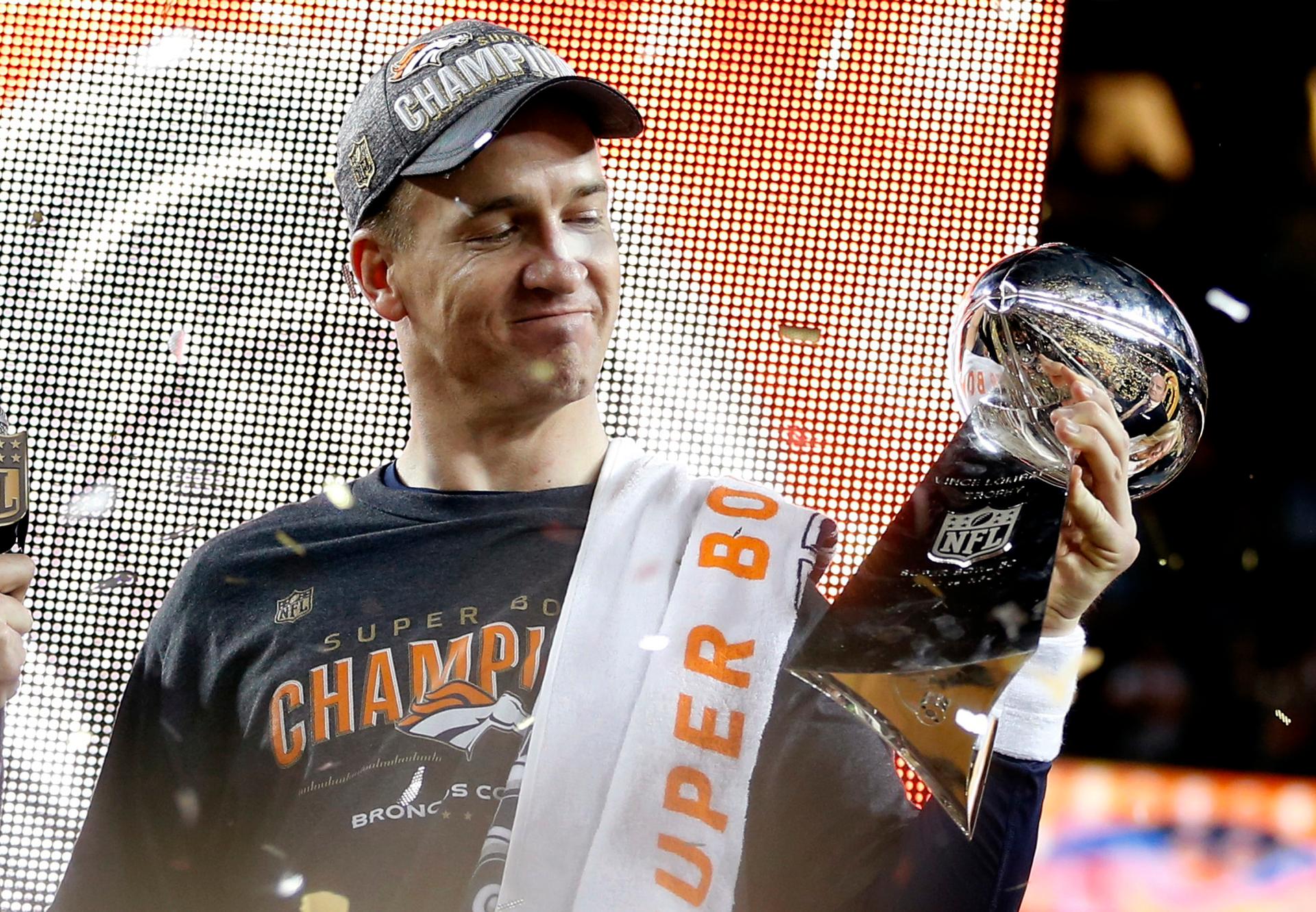Denver Broncos' quarterback Peyton Manning holds the Vince Lombardi Trophy after the Broncos defeated the Carolina Panthers in the NFL's Super Bowl 50.
By now it shouldn’t be a surprise that football and football players continue to get a pass when it comes to sexual assault.
And yet, I am stunned about how much the sport protects the players, while victims struggle to be heard and believed. And if the accused perpetrator is a gridiron celebrity or a hometown superstar, well, it’s a given.
In Enid, Oklahoma, Daniel Holtzclaw dazzled football fans as an all-state linebacker in high school, and later as a four-year starter at Eastern Michigan University.
He told footballfutures.com, “when it comes to football, I live, breathe and eat it.”
Some whispered that Holtzclaw took steroids to boost his chances to make an NFL roster. But in the end he was still too slow and, at 6-foot-1, too small to make it. But his hulking frame was an advantage as a cop on the Oklahoma City police force where he targeted, arrested and raped poor women.
He got away with it until he pulled over Jannie Ligon, a 57-year-old grandmother who bravely ignored his threats and told the authorities. An investigation documented multiple victims, including a 17-year-old. He sobbed in the courtroom when the verdict was read and is now serving a 263-year sentence for sexual crimes too awful to detail. But in a recent story for SB Nation Jeff Arnold resurrected Holtzclaw’s glory days as a football player and painted a picture of the convicted rapist so sympathetic and one sided that Arnold and SB Nation were forced to issue a public apology and pull the article.
How is it that when it comes to sexual assault, football acts as a kind of character cleanser?
I’m wondering how strong the sanitizer will be now that two-time Super Bowl champion Peyton Manning is being linked to sexual assault.
It is difficult to reconcile his squeaky clean image with the 1996 incident at the University of Tennessee where Manning was a star player. In the locker room, football trainer Jamie Naughright was examining his foot when she alleges Manning pulled down his pants and forcibly put his genitals in her face. Naughright — who boasted a pristine employment record — immediately reported the incident to Knoxville’s Sexual Assault Crisis Center, but she was fired shortly after.
Meanwhile, Manning claimed he was not assaulting Naughright, but mooning fellow athlete Malcom Saxon. The incident never got widespread attention because Naughright and Manning settled two defamation lawsuits out of court. Free of scandal, Manning went on to football fame and endorsement riches.
As reporter Cari Grieb recently wrote, “endorsement companies often ignore marque athletes and sexual assault allegations because the safety of women is irrelevant to profit margins.”
Will that change now that the Manning incident is back in the spotlight? Two days after Manning’s Super Bowl win this month, six women from the University of Tennessee filed a federal lawsuit citing an ongoing “hostile sexual environment” and the Naughright/Manning incident. Unrevealed until now is Malcolm Saxon’s letter to Manning 20 years ago, urging Manning to “do the right thing.”
I wonder if doing the right thing in cases of sexual assault will ever be a priority for the NFL, for the businesses who profit from football culture, and for the fans who refuse to believe the behavior is more than “boys will be boys.”
A version of this commentary first appeared on WGBHNews.org.
